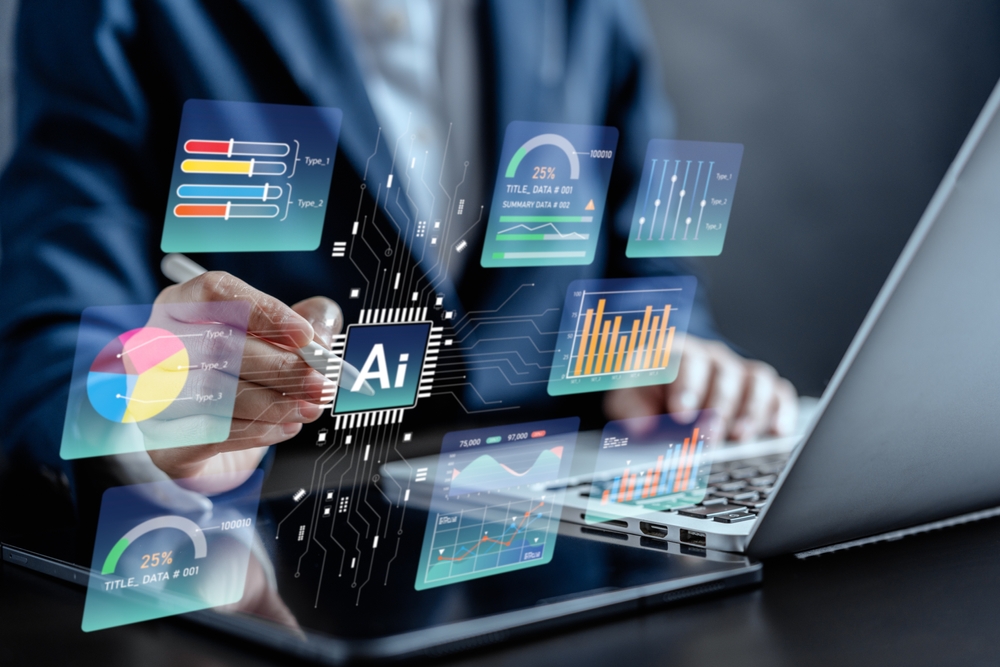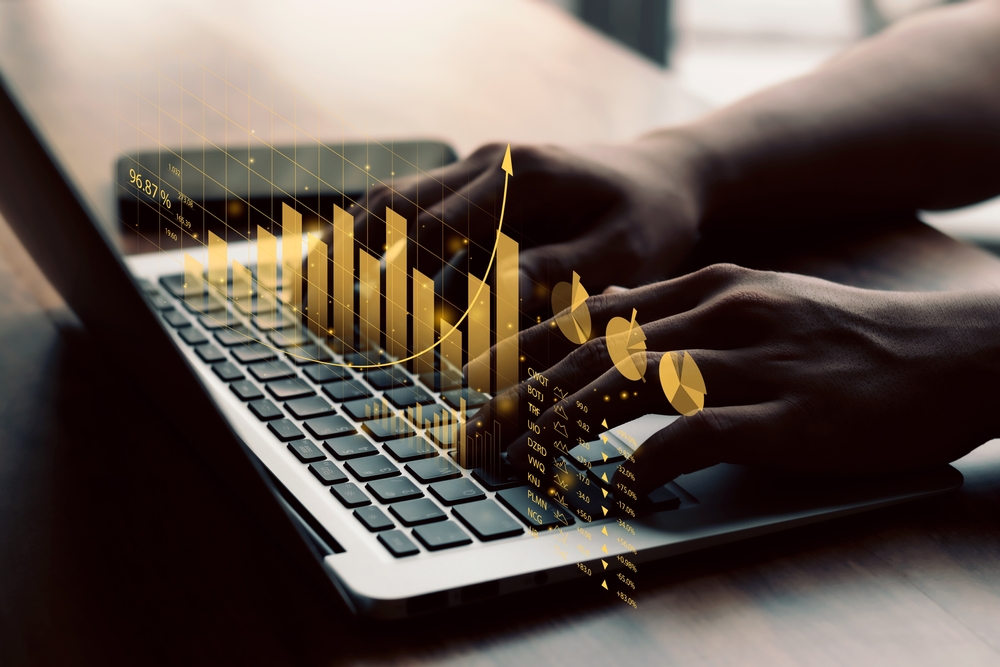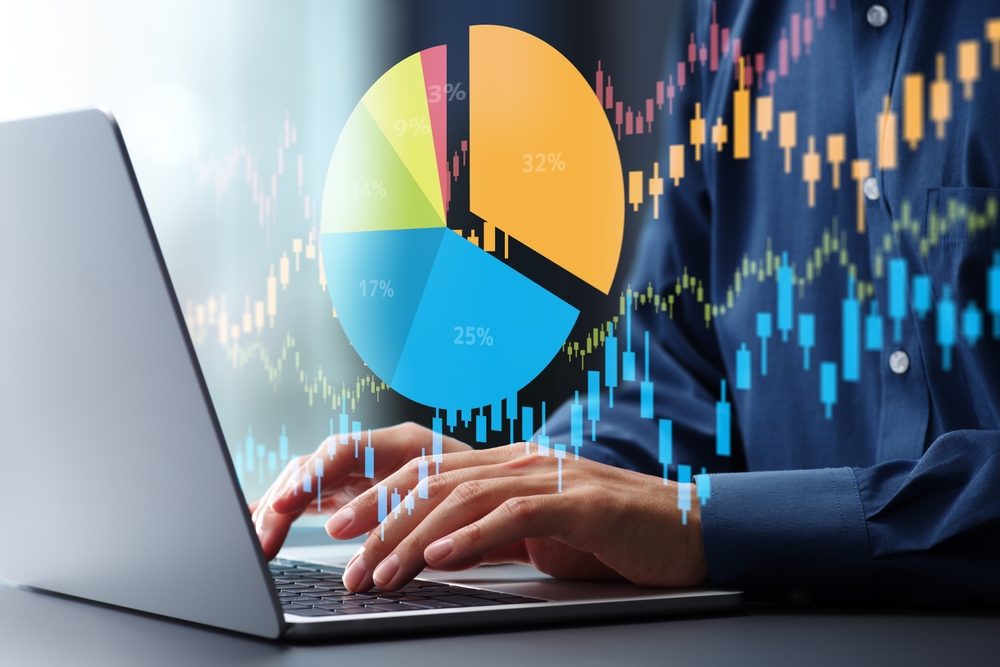
A Technological Revolution Changing the Rules of the Game
Artificial intelligence is no longer just a sci-fi concept; it is becoming a fundamental pillar of the modern economy. Thanks to its ability to process enormous amounts of data, analyze patterns, and make decisions in real time, AI is transforming not only how we live and work but also how we invest. On financial markets, algorithms increasingly dominate over traditional traders, reacting faster, more accurately, and without emotional bias[1]. This shift creates new opportunities for efficient portfolio management but also raises questions about market stability and regulation[2].
How AI Entered the World of Finance
The concept of artificial intelligence has existed since the mid-20th century, but its real boom came with the advent of powerful computers and massive data sources. Today, AI is primarily used in algorithmic trading, where it can execute trades with incredible speed and precision, unaffected by human emotions. It has also improved risk management by identifying portfolio weaknesses even before the market reacts. Robo-advisors[3], which automate investment strategy creation for everyday investors, have also become popular. Additionally, AI analyzes vast amounts of data from various sources, enabling better forecasting of market trends[4]. Companies like BlackRock with Aladdin, Goldman Sachs, and tech leaders such as Google and Nvidia are among the biggest drivers of this trend.
Investment Opportunities
AI is not just a technological phenomenon but also a lucrative investment theme with enormous growth potential. Experts estimate double-digit market growth for AI in the coming years, with its value potentially reaching trillions of dollars by the end of the decade[5]. Specialized ETFs such as the Global X Robotics & Artificial Intelligence ETF or iShares Robotics and Artificial Intelligence Multisector ETF offer investors opportunities today. Leading stocks in the sector include Nvidia, whose chips are foundational for AI computing, and Palantir, known for its focus on data analytics. New startups are emerging with breakthrough solutions in machine learning, healthcare, and autonomous systems. For everyday investors, it makes sense to focus on diversification, for example through ETFs or a combination of stable and growth stocks, minimizing risks associated with this dynamic sector.
What You Should Not Overlook
Despite the alluring potential of AI, we must not forget its darker side. One major issue is the phenomenon of “black box trading”[6]. This involves complex algorithms whose decision-making processes are opaque to humans. This increases the risk of unpredictable market reactions, especially during turbulence. Moreover, there is the danger of investors being swept up in excessive optimism, creating a bubble similar to the dot-com era[7]. Another risk is systemic fragility. If many traders use similar AI models and react to the same signals, this can trigger sharp fluctuations and avalanche effects in the markets[8]. Therefore, it is essential to view AI not only as a tool for profit but also as a source of complex challenges requiring thorough regulation and oversight.
How to Invest Wisely in AI
To fully leverage the potential of artificial intelligence in investing, it is crucial to approach it thoughtfully. The foundation is a diversified portfolio and a long-term perspective, as technological innovations require time to mature in the market. Investing in AI is most suitable for those who understand market mechanisms well and have a higher risk tolerance. Instead of blindly following trends, focus on thorough analysis. Monitor companies’ innovation potential, financial health, and competitive positioning. Patience, knowledge, and a strategic approach are key to making artificial intelligence a solid and sustainable pillar of your investment growth.
The Future of Investing in the Era of Artificial Intelligence
The development of AI and its impact on financial markets is only just beginning and brings various possible scenarios. Ideally, AI will enhance trading efficiency, risk management, and trend prediction, helping to minimize losses and maximize returns. However, as machines take over more decision-making processes, the role of human judgment may diminish, potentially leading to new market anomalies and systemic risks. Hence, the human factor will remain indispensable—as a strategist overseeing the proper functioning of AI and responding to situations that machines cannot adequately evaluate. Success in investing will thus depend on the ability to harmoniously combine human intelligence with AI’s computational power, opening a new chapter in the digital era of finance.
[1] https://www.fortunebusinessinsights.com/algorithmic-trading-market-107174
[2] https://www.investopedia.com/articles/active-trading/101014/basics-algorithmic-trading-concepts-and-examples.asp
[3] https://www.investopedia.com/terms/r/roboadvisor-roboadviser.asp
[4] https://www.forbes.com/councils/forbestechcouncil/2024/03/01/ai-in-financial-services-transforming-stock-trading/
[5] https://www.prnewswire.com/news-releases/ai-revolutionizing-industries-market-set-for-39-7-cagr-growth-reaching-1-1-trillion-by-2029--302371290.html
[6] https://www.investopedia.com/terms/b/blackbox.asp
[7] https://www.investopedia.com/terms/d/dotcom-bubble.asp
[8] https://www.investopedia.com/articles/active-trading/101014/basics-algorithmic-trading-concepts-and-examples.asp

He has been trading in the capital markets since 2002, when he started as a commodity Futures trader. Gradually he shifted his focus to equity markets, where he worked for many years with securities traders in Slovakia and the Czech Republic. He also has trading experience in markets focused on leveraged products such as Forex and CFDs, and his current new challenge is cryptocurrency trading.


